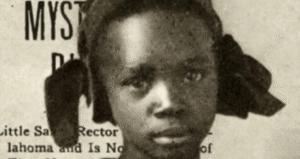In the crowded pages of American history, full of war heroes, politicians, and industrialists, there exists a figure who stands apart — not because of power or wealth, but because of the audacity of his imagination. His name was Joshua Abraham Norton, but he is forever remembered as Emperor Norton I, Emperor of the United States and Protector of Mexico.
He had no royal blood, no military, no official title. Yet, for over two decades in 19th-century San Francisco, Emperor Norton reigned with dignity, eccentricity, and an uncanny sort of wisdom. He issued proclamations, printed his own currency, inspected infrastructure, and even dissolved the United States Congress — on paper, at least.
Was he insane? Certainly, by some standards. But he was also loved, respected, and protected by the people of his adopted city. And in an age that prized wealth, speed, and power, Norton offered something rare: a life lived on his own terms, wrapped in grandeur, humor, and a deep love for community.
This is the story of America’s first — and only — self-declared emperor.
Early Life: From South Africa to the American Dream
A Promising Start
Joshua Norton was born in London in 1818 to Jewish parents, and soon after moved with his family to South Africa, where he spent most of his early life. In 1849, at the height of the California Gold Rush, Norton arrived in San Francisco — a bustling, chaotic city teeming with opportunity.
And at first, he thrived. He was a successful businessman, engaging in real estate and commodities trading. By the early 1850s, Norton had amassed a small fortune — equivalent to several million dollars today.
But then came the fateful decision that would change his life forever.
The Rice Deal That Ruined Him
In 1853, Norton attempted to corner the rice market. With rice imports from Peru halted due to famine, he bought a massive shipment at 12 cents per pound, expecting prices to soar. But within weeks, new rice shipments flooded the market. Prices plummeted. Norton, who had leveraged his entire fortune on the deal, was financially devastated.
After a long legal battle to void the contract — which he lost — he disappeared from public life, presumed bankrupt and broken.
But instead of fading into obscurity, Norton re-emerged — not as a defeated man, but as something altogether unique.
The Birth of an Emperor
A Declaration Like No Other
On September 17, 1859, Norton walked into the offices of the San Francisco Bulletin and handed over a brief announcement:
“At the peremptory request of a large majority of the citizens of these United States, I, Joshua Norton… declare and proclaim myself Emperor of these United States.”
It was published without comment. And just like that, a new empire was born — in the mind of one man, and slowly, remarkably, in the hearts of a city.
Later, he extended his reach, declaring himself Protector of Mexico when that country fell into political chaos. He even issued Imperial Proclamations, many of which were printed in local newspapers.
These included:
- Abolishing Congress
- Calling for the construction of a suspension bridge between Oakland and San Francisco (a vision that would become the Bay Bridge decades later)
- Demanding religious tolerance across Christian and Jewish communities
- Calling for the formation of a League of Nations, long before such an idea existed
Behind the humor was something deeper — a man with a genuine interest in civics, justice, and unity.
Life as Emperor: Nobility Without a Throne
The Emperor of the Streets
Norton had no palace. He lived in modest lodgings, often in rooming houses or boarding hotels. He wore a tattered blue uniform, adorned with epaulettes, plumed hats, and medals given by admirers or purchased secondhand.
Yet when he walked the streets, people bowed, saluted, and called him “Your Majesty”. Theaters reserved him front-row seats. Restaurants fed him for free. He would review the police, inspect sewers, give speeches, and break up fights — especially between racial or religious groups.
What’s extraordinary is that the city accepted him, not as a nuisance, but as a beloved figure. Local businesses even honored his self-issued currency, which read “Payable on Demand by the Imperial Treasury.”
Protected by the People
At one point, Norton was arrested by a new policeman who believed he was mentally ill. The public outcry was swift and fierce. The newspapers condemned the act, and the police chief formally apologized, releasing Norton immediately and instructing officers to salute him in the street from that point forward.
He was, in a real sense, officially unofficial — a man whom the system could not define, but whom the people had crowned.
The Wisdom of Madness
Satire or Sanity?
Was Norton insane? Possibly. Was he dangerous? Absolutely not. In fact, many of his proclamations, while written in royal style, addressed genuine political problems of the day.
He called for racial equality, political reform, and interfaith harmony. His suggestion of a suspension bridge across the bay, mocked at the time, eventually became a reality. His idea of a unified international body to prevent war would not materialize until the League of Nations, and later the United Nations.
He might have been a man who lost everything, but in reclaiming his dignity through a fictional empire, he became a kind of mirror to society — holding it to a better, kinder standard.
Death of an Emperor
A City in Mourning
On January 8, 1880, Emperor Norton collapsed at a street corner near the California Street cable car line. He died before medical help could arrive. In his pocket was a few dollars in small change, his imperial notes, and a draft letter to Queen Victoria.
The next day, the San Francisco Chronicle ran the headline:
“Le Roi est Mort” – The King is Dead.
Over 10,000 people attended his funeral, one of the largest the city had ever seen. He was buried with the word “Emperor” engraved on his tombstone.
In 1934, his remains were transferred to Woodlawn Cemetery in Colma, where he lies to this day — a sovereign of dreams, a ruler of nothing, and a legend forever.
Legacy: The Emperor Who Never Needed a Crown
Honored by Artists, Historians, and Citizens
Norton has since become a folk hero, referenced in literature by writers like Mark Twain and Robert Louis Stevenson, and immortalized in operas, graphic novels, and documentaries. San Francisco has hosted events in his honor, and in recent years, there has been a push to rename the Bay Bridge after him — a nod to the emperor who saw it coming.
His life is a testament to the idea that dignity doesn’t require recognition, and kindness doesn’t require status. He reigned in the imagination of a city, and in doing so, made himself immortal.
A Symbol of a Different America
In today’s cynical world, Norton represents something rare: the fusion of idealism and absurdity, of power without power, of humanity without pretense. He used a fantasy to heal his personal tragedy and somehow built a world that was gentler, more tolerant, and more whimsical because of it.
He reminds us that leadership isn’t always about authority. Sometimes, it’s about presence, kindness, and vision — even if that vision comes wrapped in military garb, a top hat, and a self-issued banknote.
Conclusion: The Emperor America Didn’t Deserve — But Definitely Needed
Emperor Norton I ruled no nation, commanded no army, and passed no law. And yet, his influence — spiritual, cultural, and communal — echoes into the modern day. He was a man who lost everything, and instead of fading away, he created a kingdom of hope, humor, and humanity.
He didn’t just reinvent himself. He reimagined society, if only in one corner of it. And in doing so, he became one of the most unusual, beloved, and enduring figures in American history.
Long live the Emperor.




